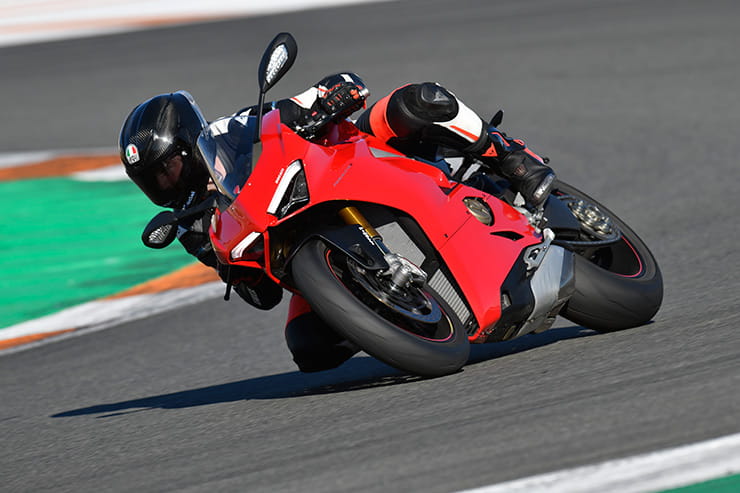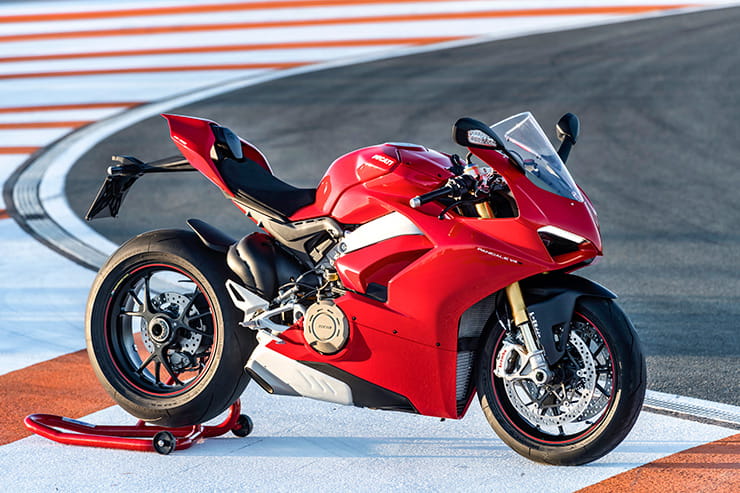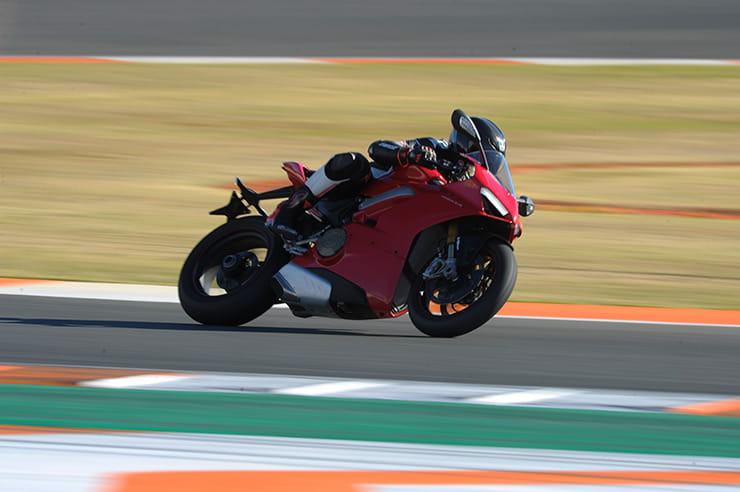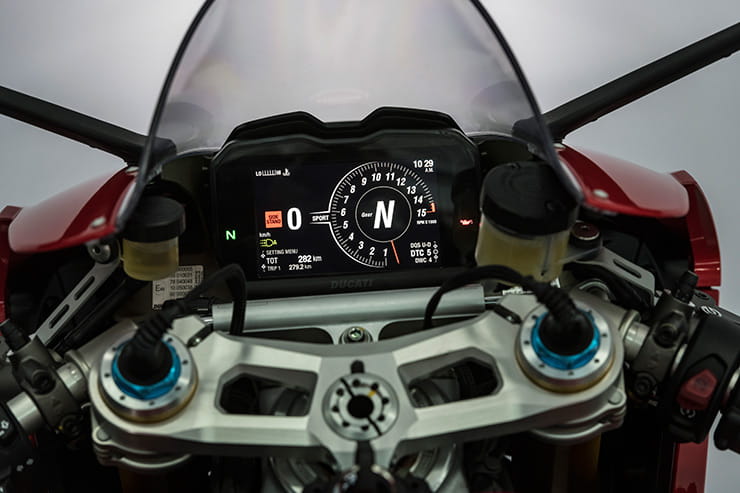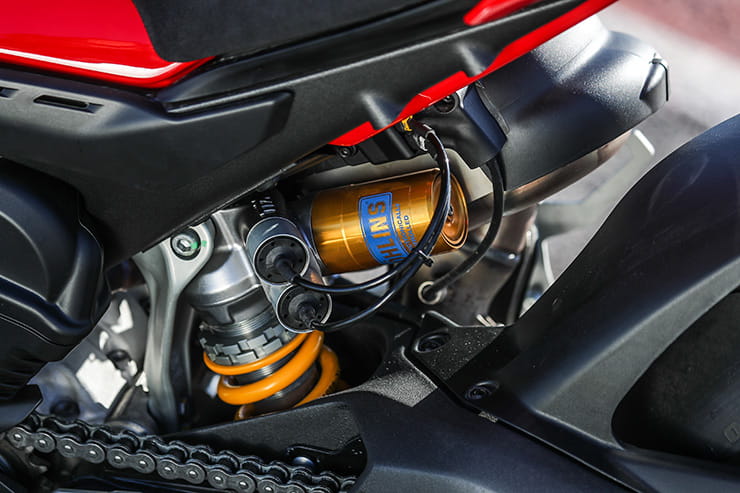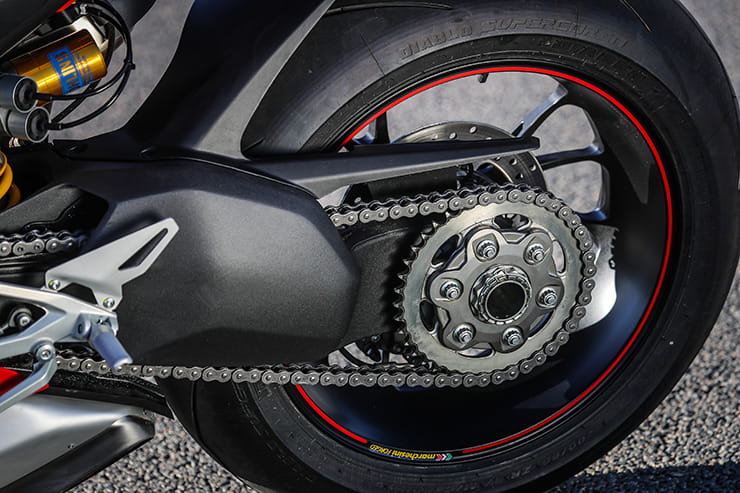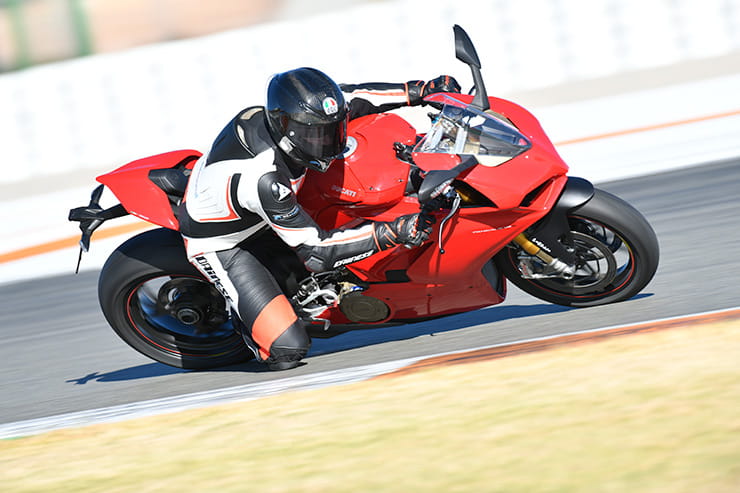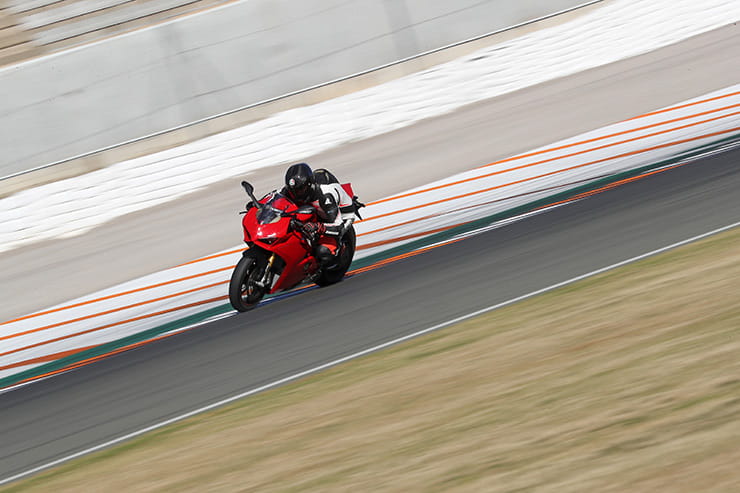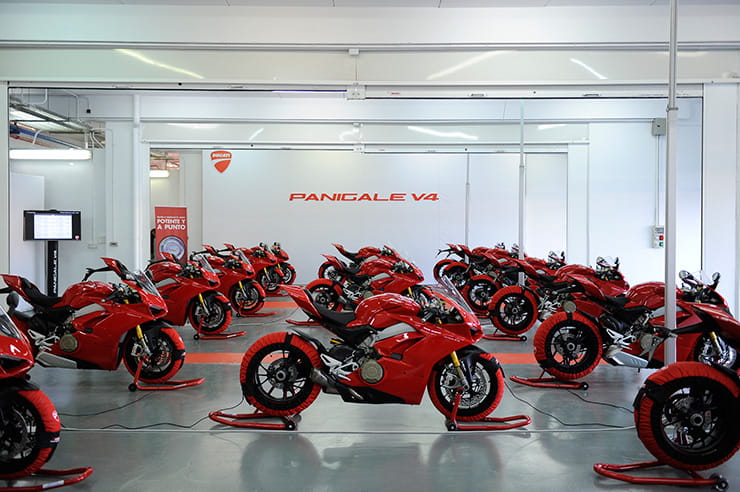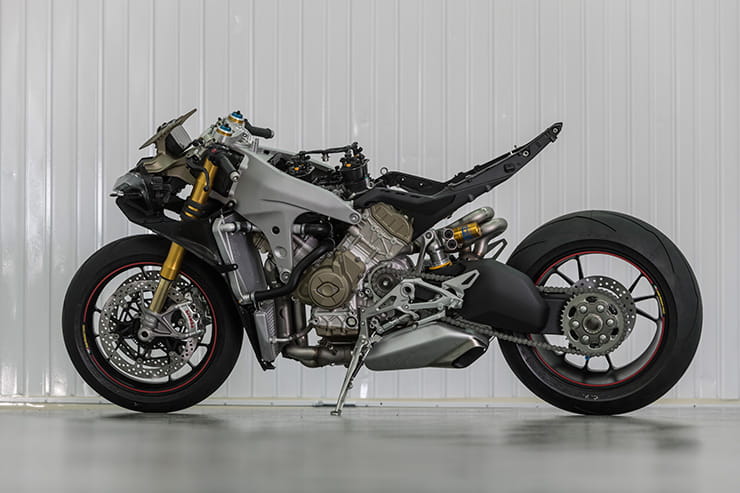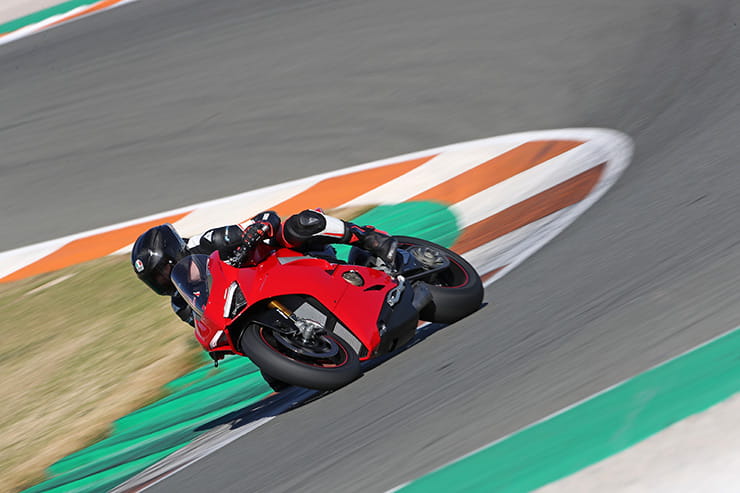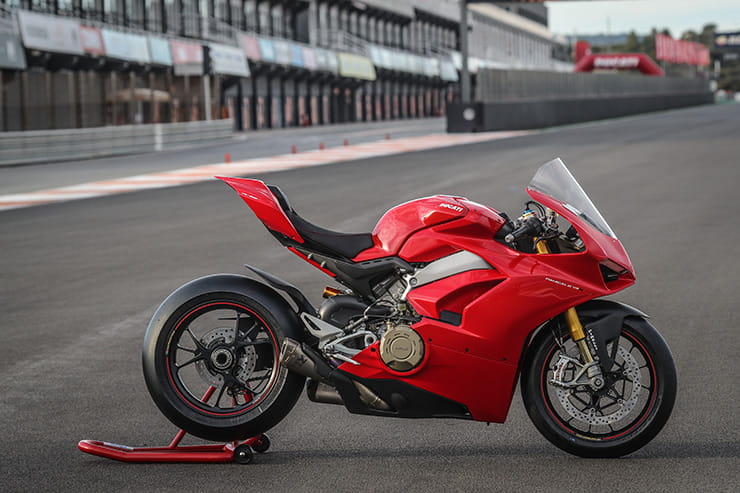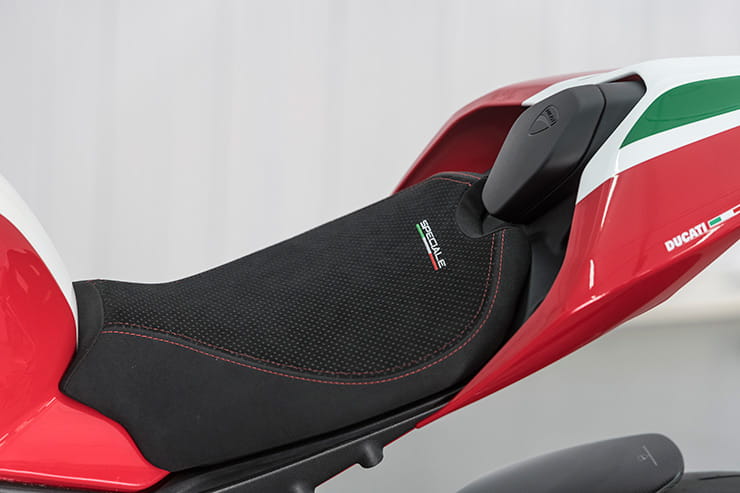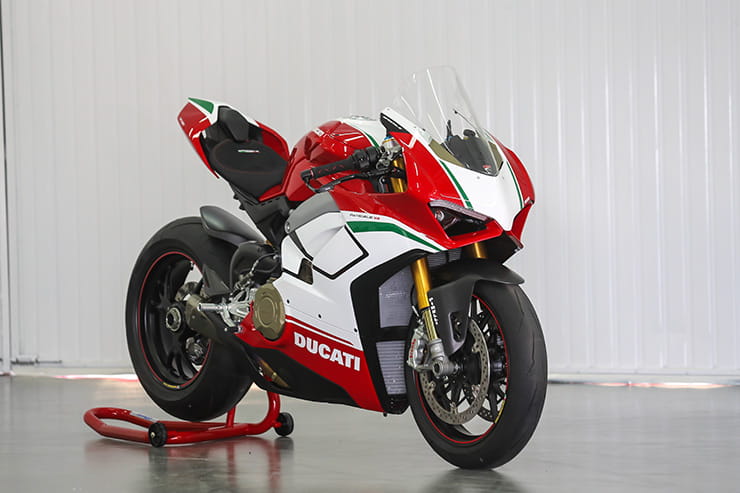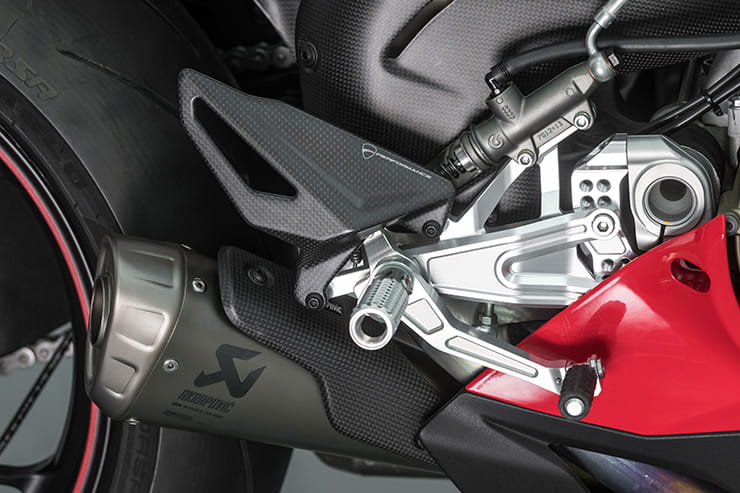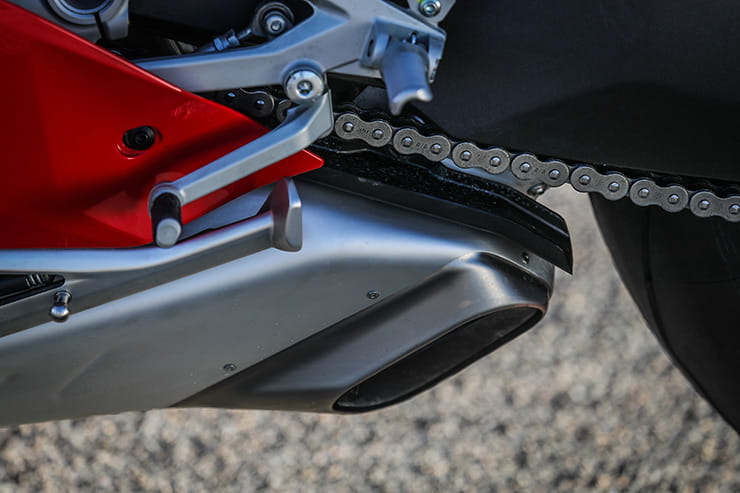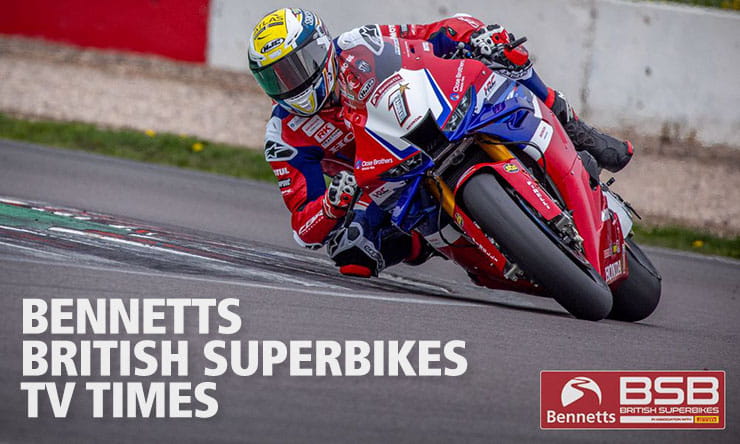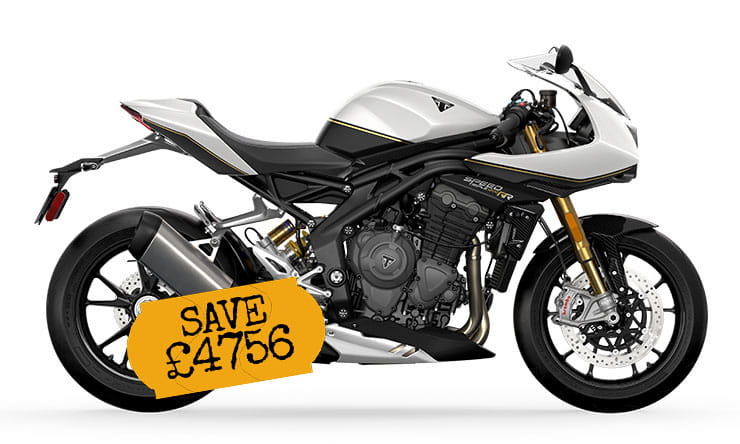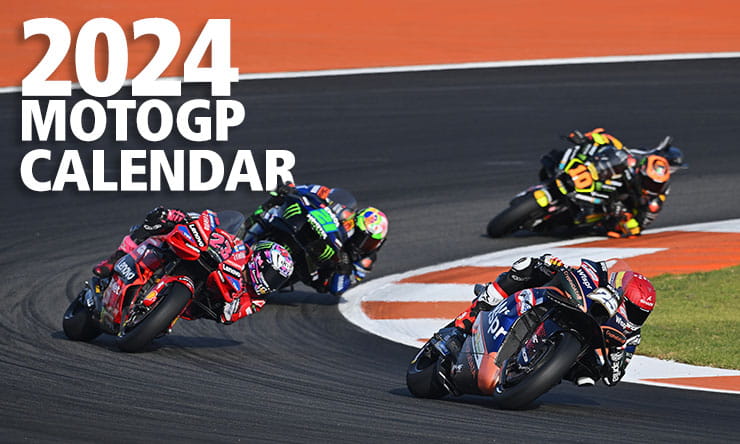|
|
Panigale V4
|
Panigale V4 S
|
Panigale V4 Speciale
|
|
PRICE
|
£19,250
|
£23,895
|
£34,995
|
|
Engine
|
Desmosedici Stradale 90° V4, rearward-rotating crankshaft, 4 Desmodromically actuated valves per cylinder, liquid cooled
|
Desmosedici Stradale 90° V4, rearward-rotating crankshaft, 4 Desmodromically actuated valves per cylinder, liquid cooled
|
Desmosedici Stradale 90° V4, rearward-rotating crankshaft, 4 Desmodromically actuated valves per cylinder, liquid cooled
|
|
Displacement
|
1,103 cc
|
1,103 cc
|
1,103 cc
|
|
Bore X stroke
|
81 x 53.5 mm
|
81 x 53.5 mm
|
81 x 53.5 mm
|
|
Compression ratio
|
14.0:1
|
14.0:1
|
14.0:1
|
|
Power
|
157.5 kW / 214hp (211 bhp) @ 13,000 rpm
|
157.5 kW / 214hp (211 bhp) @ 13,000 rpm
|
157.5 kW / 214hp (211 bhp) @ 13,000 rpm
|
|
Torque
|
124.0 Nm (91.5 lb-ft) @ 10,000 rpm
|
124.0 Nm (91.5 lb-ft) @ 10,000 rpm
|
124.0 Nm (91.5 lb-ft) @ 10,000 rpm
|
|
Fuel injection
|
Electronic fuel injection system. Twin injectors per cylinder. Full ride-by-wire elliptical throttle bodies. Variable length intake system
|
Electronic fuel injection system. Twin injectors per cylinder. Full ride-by-wire elliptical throttle bodies. Variable length intake system
|
Electronic fuel injection system. Twin injectors per cylinder. Full ride-by-wire elliptical throttle bodies. Variable length intake system
|
|
Exhaust
|
4-2-1-2 system, with 2 catalytic converters and 2 lambda probes
|
4-2-1-2 system, with 2 catalytic converters and 2 lambda probes
|
4-2-1-2 system, with 2 catalytic converters and 2 lambda probes
|
|
Gearbox
|
6 speed with Ducati Quick Shift (DQS) up/down EVO
|
6 speed with Ducati Quick Shift (DQS) up/down EVO
|
6 speed with Ducati Quick Shift (DQS) up/down EVO
|
|
Primary drive
|
Straight cut gears; Ratio 1.80:1
|
Straight cut gears; Ratio 1.80:1
|
Straight cut gears; Ratio 1.80:1
|
|
Ratio
|
1=38/14 2=36/17 3=33/19 4=32/21 5=30/22 6=30/24
|
1=38/14 2=36/17 3=33/19 4=32/21 5=30/22 6=30/24
|
1=38/14 2=36/17 3=33/19 4=32/21 5=30/22 6=30/24
|
|
Final drive
|
Chain; Front sprocket 16; Rear sprocket 41
|
Chain; Front sprocket 16; Rear sprocket 41
|
Chain; Front sprocket 16; Rear sprocket 41
|
|
Clutch
|
Hydraulically controlled slipper and self-servo wet multiplate clutch
|
Hydraulically controlled slipper and self-servo wet multiplate clutch
|
Hydraulically controlled slipper and self-servo wet multiplate clutch
|
|
Frame
|
Aluminum alloy "Front Frame"
|
Aluminum alloy "Front Frame"
|
Aluminum alloy "Front Frame"
|
|
Front suspension
|
Fully adjustable Showa BPF fork. 43 mm chromed inner tubes
|
Öhlins NIX30 43 mm fully adjustable fork with TiN treatment. Electronic compression and rebound damping adjustment with Öhlins Smart EC 2.0 event-based mode
|
Öhlins NIX30 43 mm fully adjustable fork with TiN treatment. Electronic compression and rebound damping adjustment with Öhlins Smart EC 2.0 event-based mode
|
|
Front wheel
|
5-spokes light alloy 3.50" x 17"
|
3-spokes forged aluminum alloy 3.50" x 17"
|
3-spokes forged aluminum alloy 3.50" x 17"
|
|
Front tyre
|
Pirelli Diablo Supercorsa SP 120/70 ZR17
|
Pirelli Diablo Supercorsa SP 120/70 ZR17
|
Pirelli Diablo Supercorsa SP 120/70 ZR17
|
|
Rear Suspension
|
Fully adjustable Sachs unit. Aluminum single-sided swingarm
|
Fully adjustable Ohlins TTX36 unit. Electronic compression and rebound damping adjustment with Öhlins Smart EC 2.0 event-based mode. Aluminium single-sided swingarm
|
Fully adjustable Ohlins TTX36 unit. Electronic compression and rebound damping adjustment with Öhlins Smart EC 2.0 event-based mode. Aluminium single-sided swingarm
|
|
Rear Wheel
|
5-spokes light alloy 6.00” x 17”
|
3-spokes forged aluminum alloy 6.00" x 17"
|
3-spokes forged aluminum alloy 6.00" x 17"
|
|
Rear tyre
|
Pirelli Diablo Supercorsa SP 200/60 ZR17
|
Pirelli Diablo Supercorsa SP 200/60 ZR17
|
Pirelli Diablo Supercorsa SP 200/60 ZR17
|
|
Wheel travel (front/rear)
|
120 mm (4.7 in) - 130 mm (5.1 in)
|
120 mm (4.7 in) - 130 mm (5.1 in)
|
120 mm (4.7 in) - 130 mm (5.1 in)
|
|
Front brake
|
2 x 330 mm semi-floating discs, radially mounted Brembo Monobloc Stylema® (M4.30) 4-piston callipers with Bosch Cornering ABS EVO
|
2 x 330 mm semi-floating discs, radially mounted Brembo Monobloc Stylema® (M4.30) 4-piston callipers with Bosch Cornering ABS EVO
|
2 x 330 mm semi-floating discs, radially mounted Brembo Monobloc Stylema® (M4.30) 4-piston callipers with Bosch Cornering ABS EVO
|
|
Rear brake
|
245 mm disc, 2-piston calliper with Bosch Cornering ABS EVO
|
245 mm disc, 2-piston calliper with Bosch Cornering ABS EVO
|
245 mm disc, 2-piston calliper with Bosch Cornering ABS EVO
|
|
Instrumentation
|
Last generation digital unit with 5" TFT colour display
|
Last generation digital unit with 5" TFT colour display
|
Last generation digital unit with 5" TFT colour display
|
|
Dry weight
|
175 kg (386 lb)
|
174 kg (384 lb)
|
174 kg (384 lb)
|
|
Kerb weight
|
198 kg (436 lb)
|
195 kg (430 lb)
|
195 kg (430 lb)
|
|
Seat height
|
830 mm (32.48 in)
|
830 mm (32.48 in)
|
830 mm (32.48 in)
|
|
Wheelbase
|
1.469 mm (57,8 in)
|
1.469 mm (57,8 in)
|
1.469 mm (57,8 in)
|
|
Rake
|
24,5°
|
24,5°
|
24,5°
|
|
Front wheel trail
|
100 mm (4 in)
|
100 mm (4 in)
|
100 mm (4 in)
|
|
Fuel tank capacity
|
16 l - 4.23 gallon (US)
|
16 l - 4.23 gallon (US)
|
16 l - 4.23 gallon (US)
|
|
Number of seats
|
Dual seats
|
Dual seats
|
Single seat
|
|
|
Riding Modes, Power Modes, Bosch Cornering ABS EVO, Ducati Traction Control (DTC) EVO, Ducati Wheelie Control (DWC) EVO, Ducati Slide Control (DSC), Engine Brake Control (EBC) EVO, Auto tyre calibration
|
Riding Modes, Power Modes, Bosch Cornering ABS EVO, Ducati Traction Control (DTC) EVO, Ducati Wheelie Control (DWC) EVO, Ducati Slide Control (DSC), Engine Brake Control (EBC) EVO, Auto tyre calibration
|
Riding Modes, Power Modes, Bosch Cornering ABS EVO, Ducati Traction Control (DTC) EVO, Ducati Wheelie Control (DWC) EVO, Ducati Slide Control (DSC), Engine Brake Control (EBC) EVO, Auto tyre calibration
|
|
Standard equipment
|
|
|
|
|
|
Ducati Power Launch (DPL), Ducati Quick Shift (DQS) up/down EVO, Full LED lighting with Daytime Running Light (DRL), Sachs steering damper, Quick adjustment buttons, Auto-off indicators
|
Ducati Power Launch (DPL), Ducati Quick Shift (DQS) up/down EVO, Full LED lighting with Daytime Running Light (DRL), Ducati Electronic Suspension (DES) EVO with Ohlins suspension and steering damper, Quick adjustment buttons, Lithium-ion battery, Auto-off indicators, Marchesini aluminium forged wheels
|
Ducati Power Launch (DPL), Ducati Quick Shift (DQS) up/down EVO, Full LED lighting with Daytime Running Light (DRL), Ducati Electronic Suspension (DES) EVO with Ohlins suspension and steering damper, Quick adjustment buttons, Lithium-ion battery, Auto-off indicators, Marchesini aluminium forged wheels, Carbon fibre front/rear mudguards, Machined-from-solid top yoke with identification number, Alcantara® seat, Dedicated handle grips, Adjustable foot pegs, Carbon fibre heel guard, Carbon fibre cover swinging arm, Racing articulated levers, Racing fuel tank cap, Brake level protection
|
|
Additional Equipment
|
|
|
|
|
|
Passenger seat and footpegs kit
|
Passenger seat and footpegs kit
|
Ducati Performance by Akrapovic Titanium full-racing exhaust system, Racing windshield, Machined mirror block-off plates, License plate mount removal plug, Ducati Data Analyser+ (DDA+) with GPS module, Paddock bike cover
|
|
Ready for
|
Ducati Data Analyser+ (DDA+) with GPS module, Ducati Multimedia System (DMS) and anti-theft
|
Ducati Data Analyser+ (DDA+) with GPS module, Ducati Multimedia System (DMS) and anti-theft
|
Ducati Multimedia System (DMS) and anti-theft
|
|
Warranty (months)
|
24 months unlimited mileage
|
24 months unlimited mileage
|
24 months unlimited mileage
|
|
Maintenance (km/months)
|
12,000 km (7,500 mi) / 12 months
|
12,000 km (7,500 mi) / 12 months
|
12,000 km (7,500 mi) / 12 months
|
|
Valve clearance adjustment (km)
|
24,000 km (15,000 mi)
|
24,000 km (15,000 mi)
|
24,000 km (15,000 mi)
|
|
STANDARD
|
Euro 4
|
Euro 4
|
Euro 4
|
|
CONSUMPTION/EMISSIONS
|
41mpg - CO2 165 g/km
|
41mpg - CO2 165 g/km
|
41mpg - CO2 165 g/km
|



